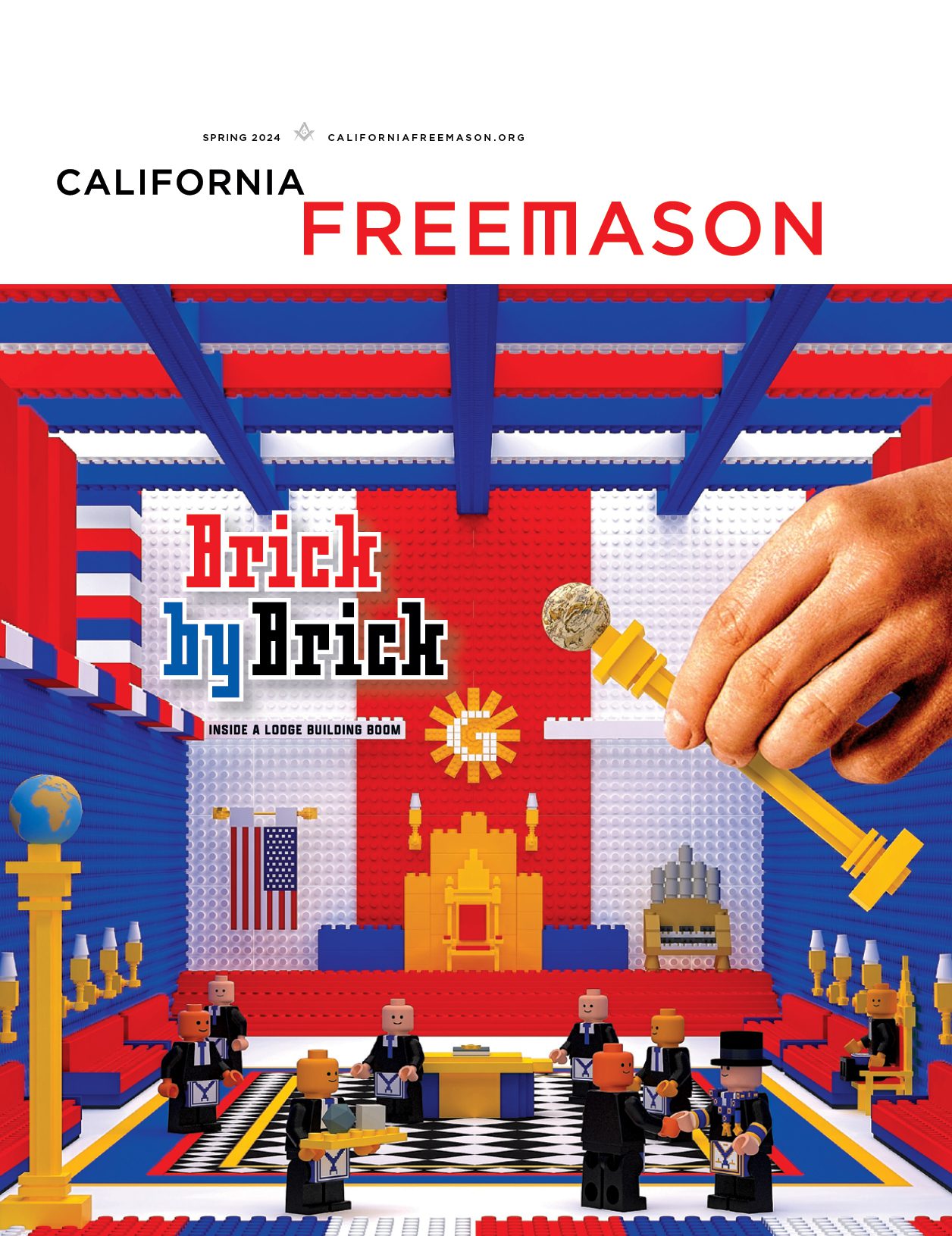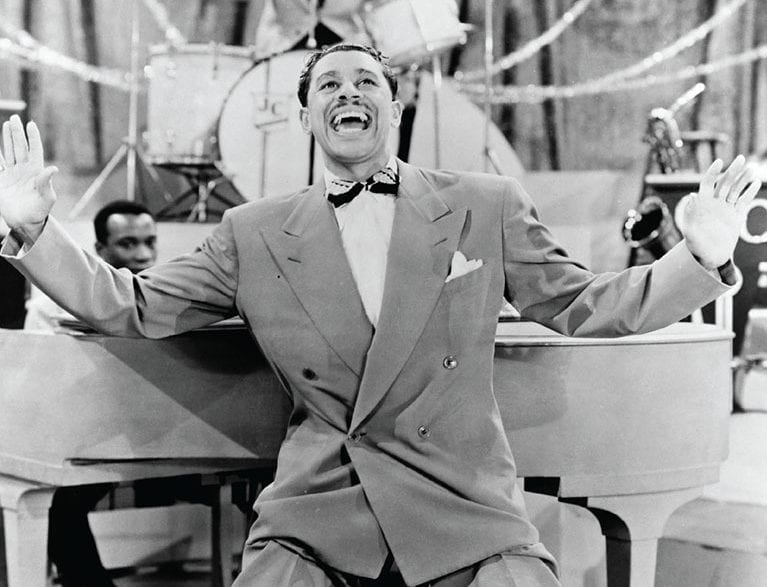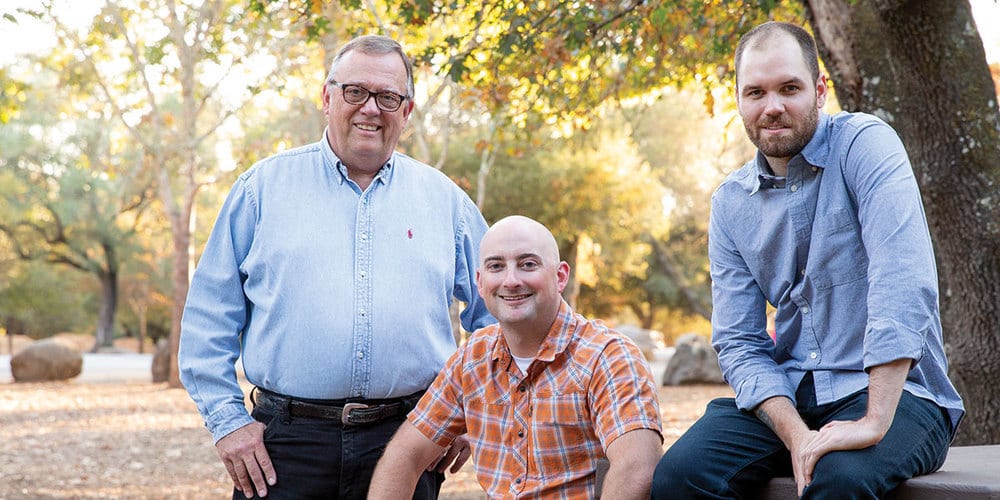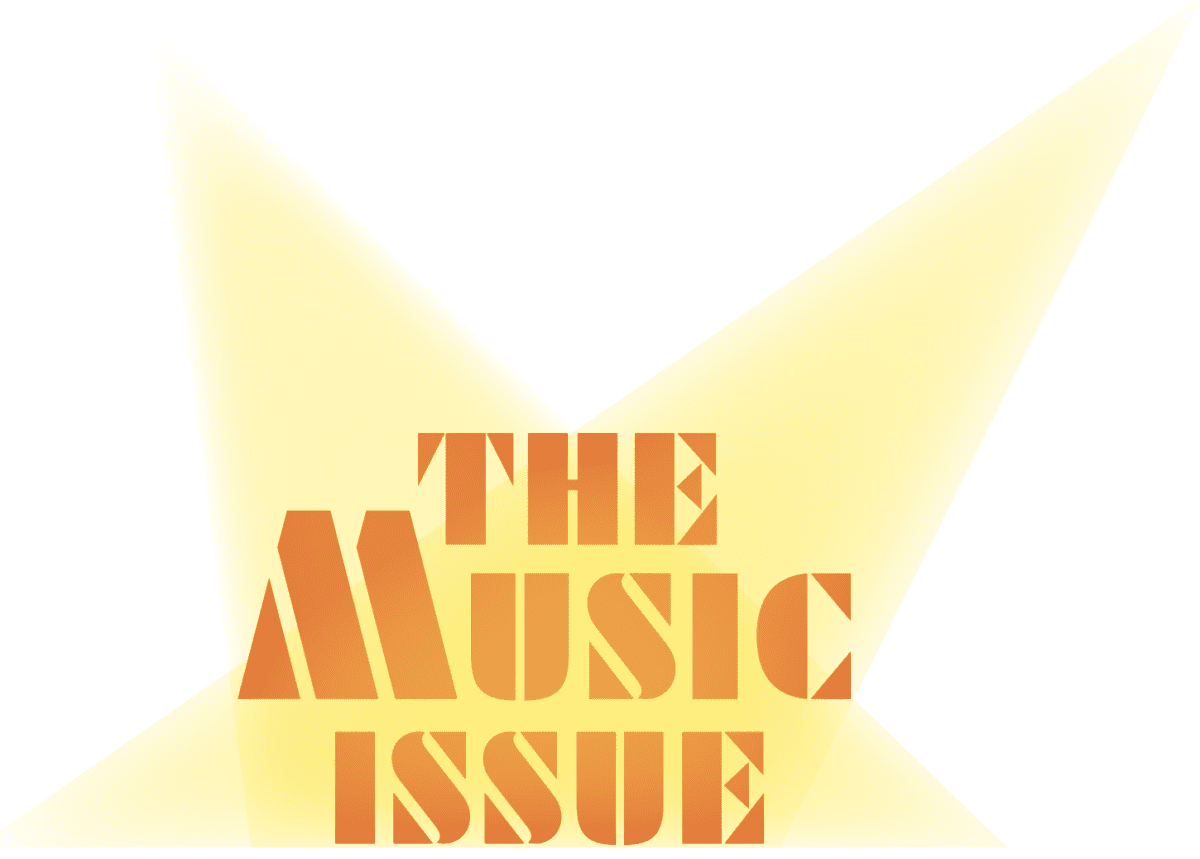“Have you ever sat through a degree ceremony with no music?” begins Steve Miller as he warms up what’s become a fairly well-rehearsed pitch. “Awful! It’s dead quiet, and that’s boring. It’s like having a movie without a soundtrack. Nobody wants to watch that.”
If those sound like strong feelings on the subject, it’s no wonder: In addition to serving as the organist for San Dimas No. 428, Miller is also the fraternity’s grand organist. To him, the dearth of music in lodges isn’t just an aesthetic shortcoming; it’s a serious problem. And after years of discussion with other Masons around the state, it’s one he’s trying to rectify. So, this summer, Miller and Grand Lecturer Ricky Lawler launched the first phase of what they hope will become an ever growing library of music that lodges can tap into to enliven their Masonic events, from business sessions to formal degree conferrals. Says Miller, “It takes six hours to learn all the lessons of Freemasonry. That’s a lot of space to fill.”
For Miller and Lawler, that meant collecting musical arrangements they deemed suitable for Masonic purposes, and then recording Miller playing them on the Galanti organ at the California Masonic Memorial Temple. Those digital files are now available for all Masonic lodges and organizations to download and use at freemason.org/music. Miller stresses that this is just the beginning of what will ultimately be a much larger project; the recordings they made are bare-bones and taken straight from the keyboard—meaning they don’t capture the full majesty of an organ filling a room with sound. As a result, they can lack the emotional punch that a high-quality recording of an enormous instrument like the Galanti is capable of delivering. “That organ is dynamite,” Miller says. “And there’s 43,000 square feet of air in that room—that’s over an acre under one roof. You’re not getting that in a keyboard recording.”
Still, it’s a start—and for a great many lodges, it’s better than nothing. By making the files available, the pair hope that lodges without musicians can inject a bit of verve into what are, after all, supposed to be deeply moving ceremonies. “Music is very important to the Masonic ritual,” Lawler says. “Music adds a cadence that everyone can follow. We become one unit, not 30 individuals. You need that rhythm, that beat.”
In September, Lawler and Miller posted the first dozen tunes they recorded—a collection of hymns, arias, and arrangements that Miller has played at grand lodge and local events, along with a short description of each and a note about the best moments of typical Masonic ceremony to play them. As the pandemic shutdown orders lift and he’s able to visit more lodges, the plan is to solicit Masonic musicians from around the state to contribute to the library, either with their own recordings or by suggesting new pieces. Lawler is also working on a plan to record musicians who live at the Masonic Homes of California for inclusion in the digital library.
Already, Lawler says, there’s excitement surrounding the project. “As we’ve talked about it, it’s like, why confine this to just us? We can work with men, women, the youth orders—they can all have access to this library.”
Of course, Miller and Lawler aren’t the first to record Masonic-themed music. A google search reveals dozens of CDs and other collections of music billed as Masonic. However, Miller says, “Most of them are horrible.” Besides, the appeal of gathering music made by California Masons is in the collective effort it takes—something members can appreciate and feel that much more connected to.
Any discussion of music in Masonry inevitably leads back to the same question: What is Masonic music, anyway?
There’s not an easy answer. “There is no official Masonic music,” Miller says. “Most of it’s just based on tradition.” For instance, in California, officers typically enter a meeting of the grand lodge to the “Prince of Denmark’s March.” But why? In short, Miller says, it was introduced by his mentor, Harold Hand. “He thought ‘Prince of Denmark’ was good marching music,” Miller explains. More important for Hand, who was an amateur organist, “It was the only piece he knew. So people got used to it.”
In other instances, grand officers and lodge masters have requested specific pieces be played during particular events. During his term in office, Past Grand Master John Heisner requested the Scottish bagpipe melody “Highland Cathedral” be played at the Annual Communication’s Installation of Officers. Since then, others have ensured that the number remained in Miller’s repertoire. Past Grand Master John L. Cooper III suggested the prelude to the ancient Latin hymn “Te Deum” to accompany the opening and closing of the Bible. Lawler himself suggested the theme from the film Dances with Wolves be played during another portion of the event. Played often enough, those tunes become part of the fabric of the fraternity. In any event, the appropriateness of a selection is an inherently subjective question.
That subjectivity has allowed enough latitude for some especially humorous musical choices. Chris Putnam, the late assistant grand organist, sometimes played the theme music from Star Wars to open his lodge meetings. At Annual Communication in 2020—his last day as grand master—Miller sent Grand Master John Trauner off to the sound of “Happy Trails.” “It’s perfect for him—John’s a cowboy,” Miller says. Lawler recalls visiting a lodge meeting at Riverside No. 635 when organist Fred Spears opened the proceedings with “Send in the Clowns.”
Sometimes music just needs to provide a steady beat to step to. At a recent Officer’s School of Instruction, Lawler had the assembled members practice marching into lodge to Huey Lewis’s “Hip to Be Square.” “It actually worked,” he says. “It changed everyone’s attitude—focused us on what we were doing and how we’d go through it.” Another time, the practice music was AC/DC’s “Thunderstruck.” In both instances, the tune was swapped out for something a bit more stately for the actual event.
A lodge’s musical selections are often where its personality shines through. But both Miller and Lawler agree that, in general, a tune needs to conform to a few criteria in order to be considered suitable for a Masonic event. “Does it make the ritual more meaningful?” Lawler asks. “Is it offering the right cadence for officers in their procession? Is it enhancing the ritual rather than taking something away from it? We’re trying to make sure that what we’re selecting will stand the test of time.”
Another consideration is length. Often, a piece of music may need to be extended to match the duration of what it’s accompanying, so pieces that can be readily repeated make a better fit. For instance, Miller says it takes 2 minutes, 43 seconds for officers to be marched in during Annual Communication. If he’s playing “Highland Cathedral” (as he often does), that’s four and a half loops through the melody. Repetitive, perhaps, but workable.
There is one exception to the rule about Masonic music being unofficial. During the third degree conferral, all lodges sing “Pleyel’s Hymn.” The dirge is based on a melody written by Ignaz Pleyel, a German Episcopalian, Freemason, and student of Franz Haydn’s; the lyrics were written by the 19th century American Mason David Vinton. Miller points to that number as prime evidence of the value of a lodge musician—or, at a minimum, a backing track. “If you’re stuck in lodge with no piano and guys are singing it a cappella, it can be awful,” he says. “People are trying to wing it, and they’re all over the place. You want to kill yourself.”
Such are the stakes for Miller, who’s hoping that an army of Masonic pianists, guitarists, and others will rally to help him compile a large and inclusive collection for all to enjoy. Streaming melodies from an iPhone to a Bluetooth speaker may never totally summon the magical, mystical power of live music. But to musicians like Miller, anything’s better than silence.
Pitch In
Want to contribute to the growing Masonic music library? Grand Lecturer Ricky Lawler and Grand Organist Steve Miller are on the hunt for Masonic musicians to work with— along with recording specialists or audio engineers. If you’re interested, reach out to grandlodgeorganist@gmail.com.
Illustration credit:
Eva Vazquez
More from this issue:
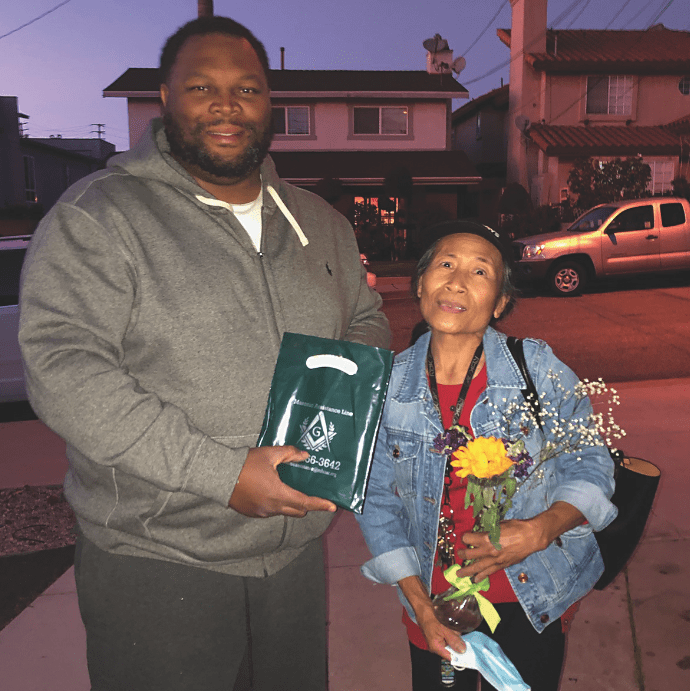
Outstanding in Outreach
How Beach Cities No. 753 made lodge outreach central to its entire mission.

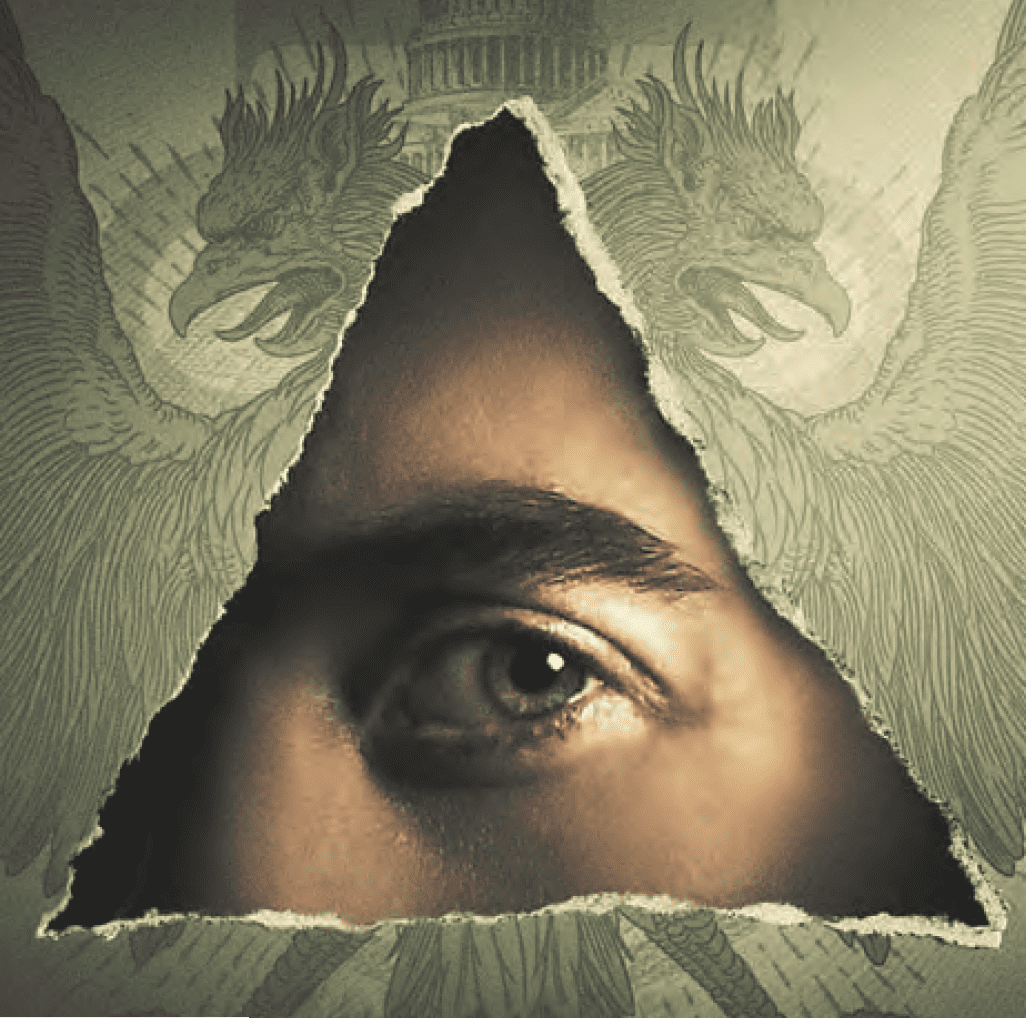
In Dan Brown’s The Lost Symbol, a Masonic Whodunnit
This fall, in ‘Dan Brown’s The Lost Symbol’ on Peacock, a new Masonic mystery thriller hits the streaming airwaves.
